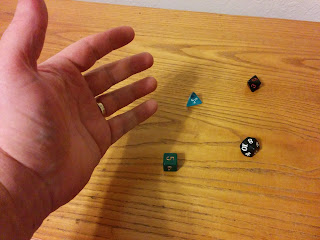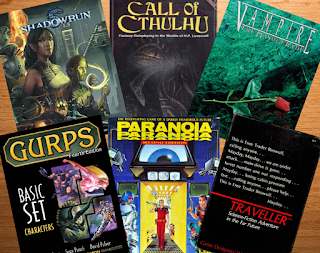I was playing
Say Anything with some friends recently. The basic idea behind this game, for those who don't already know, is that the players take turns being the judge, and the judge reads a question off one of the cards in the deck (the questions always refer to the judge; for example, 'What is my favourite brand of beer?' or 'Where in the world would I like to travel that I haven't already been?'). The other players write down possible answers on small dry-erase boards. The judge decides and secretly records which answer best applies. The players then vote on which answer they think the judge chose. They get points for voting for the answer chosen by the judge, and the person who wrote the answer chosen by the judge gets points as well.
On one of John's turns, he read the question, 'What game do I think is most overrated?' There were several good answers, but the one he chose was
Dungeons and Dragons. The reason he gave is because there are many roleplaying games (of varying levels of quality) in existence, but so many people (even many gamers) have never heard of any of them apart from
D&D (or, these days,
Pathfinder, which was based on
D&D so may as well count as
D&D anyway).
John went on to describe how whenever he talks to people and tells them that he enjoys playing roleplaying games, they
always respond with, 'Oh, you mean like
Dungeons and Dragons?'
He went on to describe how annoying it always is to have to explain, 'Well, yes, it is like
Dungeons and Dragons, but it's not like
Dungeons and Dragons because the system is different, the setting is different, the object is different...' Because of that, because of how tired he gets having to tell people that he doesn't play
D&D because there are so many other and (in his opinion) better RPGs out there, he ranks
D&D as the most overrated game.










